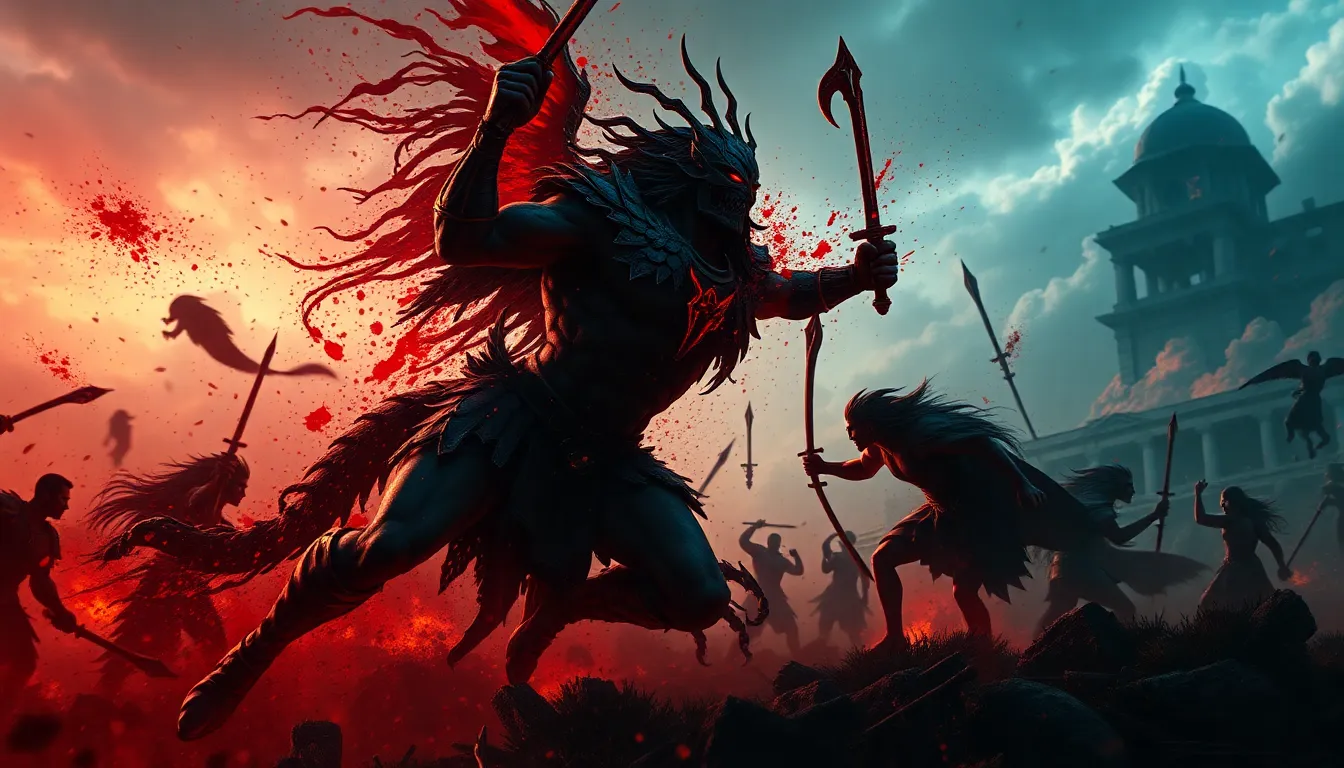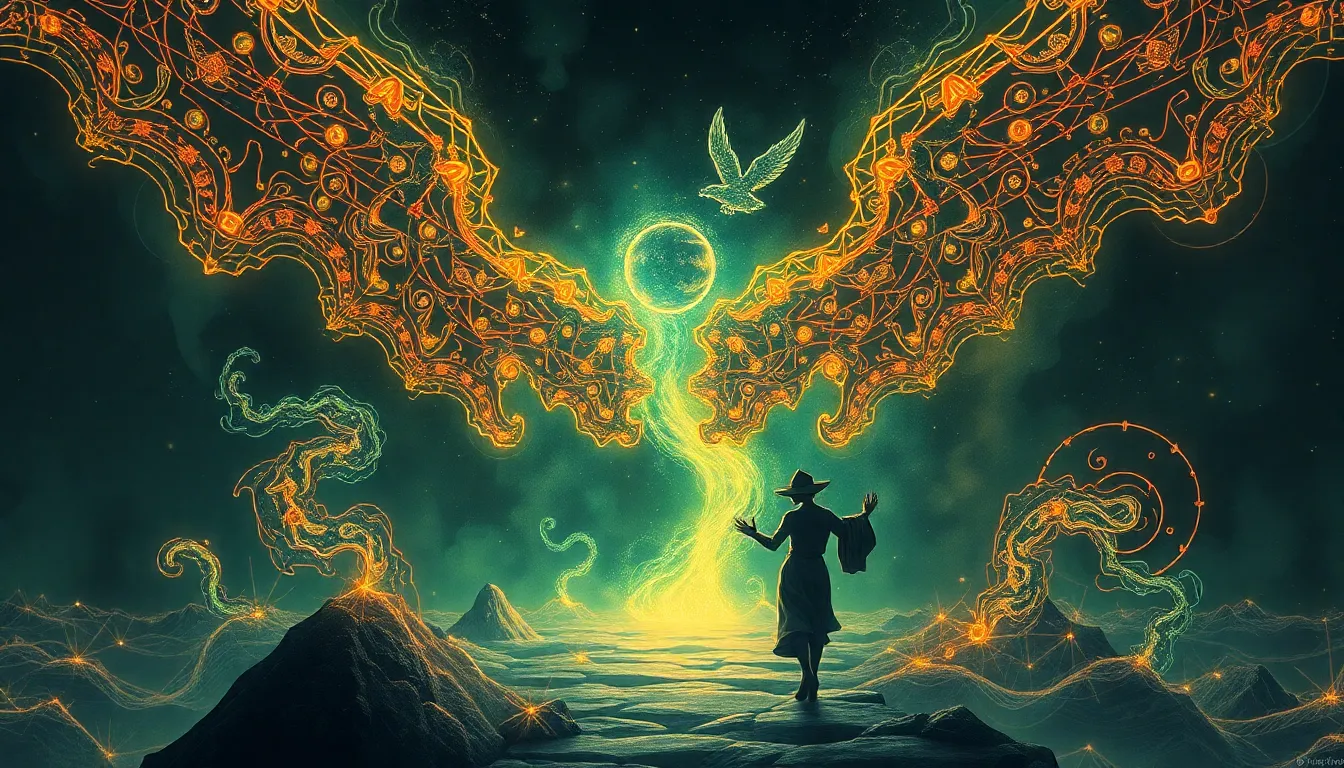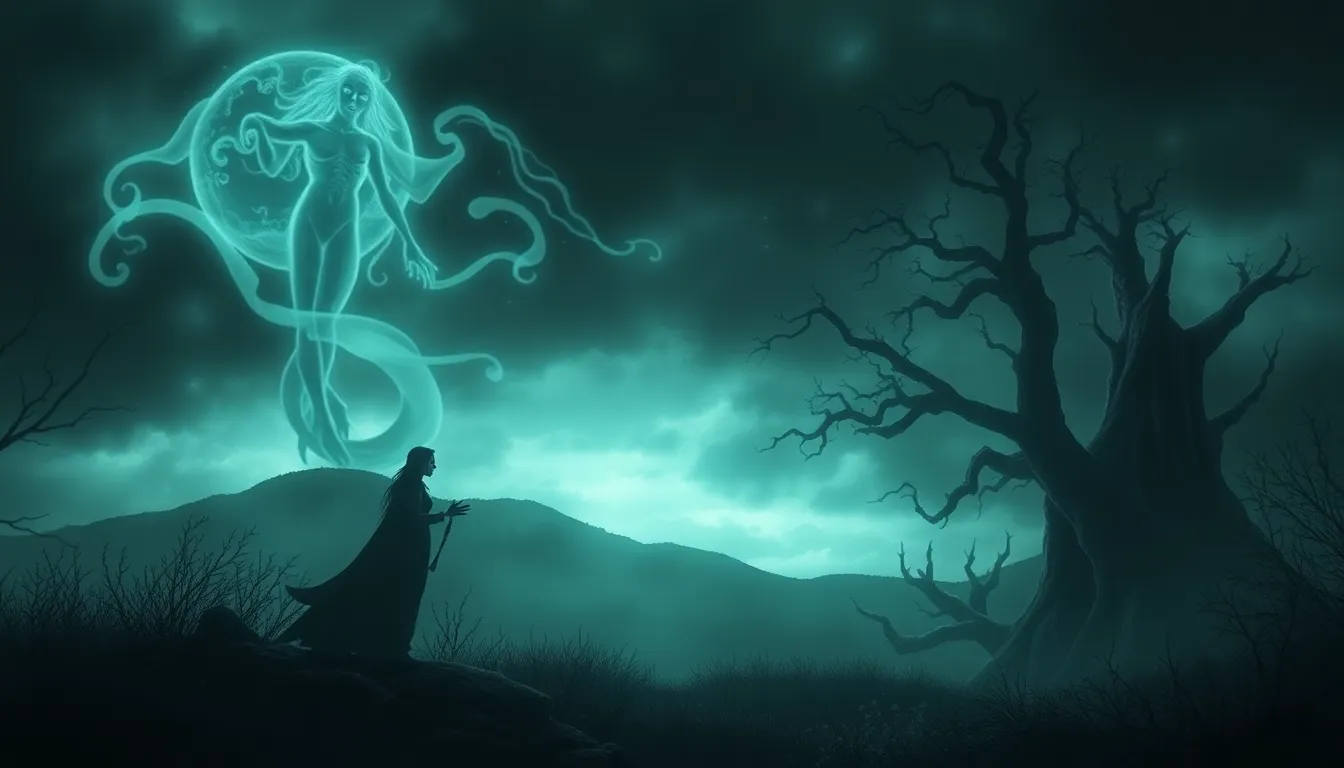Blood and Bravery: The Most Dramatic Mythological Battles
I. Introduction
Mythology serves as a mirror reflecting the beliefs, values, and fears of cultures throughout history. These narratives often include tales of gods, heroes, and epic battles that not only entertain but also educate societies about their ideals and ethics. The theme of battles in mythology is particularly significant, as it encapsulates the essence of conflict—both divine and human. This article aims to explore some of the most dramatic mythological battles, highlighting their cultural importance and the lessons they impart.
II. The Context of Myths and Battles
Warfare plays a pivotal role in many ancient mythologies, symbolizing not just physical conflict but also moral and existential struggles. These battles often embody:
- Heroism: Characters who display bravery and selflessness in the face of adversity.
- Sacrifice: The willingness to give up one’s life for a greater cause or to protect loved ones.
- The Supernatural: The involvement of gods and mythical creatures that elevate the stakes of the conflict.
These battles resonate with societal values, reflecting the fears and aspirations of the cultures that birthed them. Through these narratives, ancient peoples confronted their own realities—be it war, betrayal, or the quest for justice.
III. The Titanomachy: Clash of Titans and Olympians
In Greek mythology, the Titanomachy represents the epic battle between the Olympian gods and the Titans, a conflict that reshaped the cosmos. This monumental struggle is characterized by key figures:
- Zeus: The leader of the Olympians who ultimately overthrew Cronus.
- Cronus: The leader of the Titans, who feared his children would overthrow him.
- The Titans: Powerful deities representing various natural and cosmic elements.
The Titanomachy is significant as it marks the transition of power from the older generation of gods to the younger Olympians, establishing a new order in the pantheon. This battle symbolizes the theme of change and the inevitability of succession in both divine and human realms.
IV. The Battle of Ragnarok: Norse Mythology’s Final Conflict
Ragnarok is a series of events in Norse mythology that culminates in a cataclysmic battle, foretelling the end of the world. This prophetic battle features major characters such as:
- Odin: The Allfather, who leads the gods into battle.
- Thor: The god of thunder, destined to confront the serpent Jörmungandr.
- Loki: The trickster god who plays a crucial role in the chaos.
- Fenrir: The monstrous wolf destined to kill Odin.
The themes of fate, destruction, and rebirth are central to Ragnarok. It reflects the cyclical nature of existence and the belief that death is not the end but a transition to a new beginning.
V. The Kurukshetra War: The Epic Showdown in the Mahabharata
The Kurukshetra War is a central event in the Indian epic, the Mahabharata, representing a monumental clash between the Pandavas and the Kauravas. This war is not just a battle for a kingdom but also a profound moral dilemma, involving:
- The Pandavas: The righteous brothers fighting for their rightful claim.
- The Kauravas: Their cousins, who embody greed and injustice.
The Kurukshetra War is steeped in ethical complexities, showcasing themes of duty, righteousness, and the consequences of war. It serves as a philosophical exploration of dharma (duty) and the moral quandaries that arise in the face of conflict.
VI. The Iliad’s Siege of Troy: Glory and Tragedy
The Iliad, attributed to Homer, dramatizes the Trojan War, focusing on the siege of Troy and the heroic deeds and profound tragedies of its characters. Key events include:
- Achilles’ Rage: His withdrawal from battle due to a personal slight, which has dire consequences.
- The Fall of Hector: A moment of both heroism and tragedy that encapsulates the futility of war.
The interplay of personal honor and collective fate is a central theme in the Iliad, illustrating how individual actions can influence the course of history and the lives of many.
VII. The Battle of the Gods: Egyptian Mythology’s Divine Conflicts
In Egyptian mythology, conflicts among the gods were vital for maintaining cosmic order. A notable battle is the conflict between Set and Osiris, where:
- Set: The god of chaos and disorder, represents disruption.
- Osiris: The god of life and resurrection, symbolizes harmony and renewal.
These divine battles are rich in symbolism, showcasing the struggle between chaos and harmony, reflecting the Egyptians’ beliefs about the universe’s balance and the importance of order.
VIII. The Fight Against the Giants: Greek Myths of Heroism
The Gigantomachy is another significant battle in Greek mythology, where the Olympian gods clash with the Giants. This struggle highlights heroism, featuring heroes such as:
- Heracles: A demigod who plays a central role in defeating the Giants.
- The Olympian Gods: Each contributing their unique powers to vanquish the foes.
This battle exemplifies the theme of courage against overwhelming odds, illustrating how unity and bravery can overcome even the most formidable challenges.
IX. The Role of Women in Mythological Battles
Women’s roles in mythological battles often reflect their complexities and strengths. Figures such as:
- Athena: The goddess of wisdom, who plays a strategic role in many conflicts, including the Trojan War.
- Freya: A warrior goddess in Norse mythology, symbolizing love and war.
- Durga: In Hindu mythology, she embodies the divine feminine power that battles demons.
These characters demonstrate that women are not merely passive figures in mythology but are often central to the themes of conflict, representing both nurturing and destructive powers.



